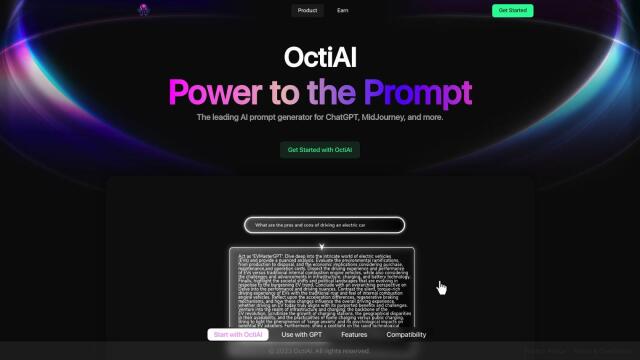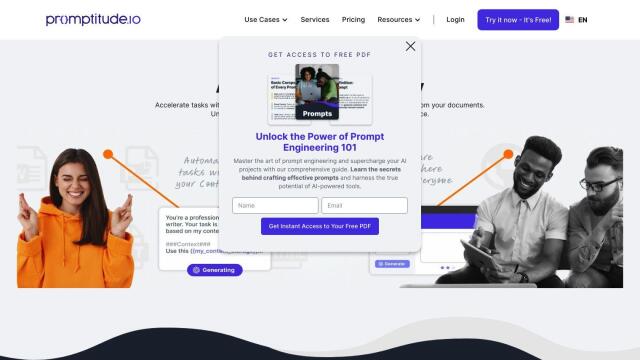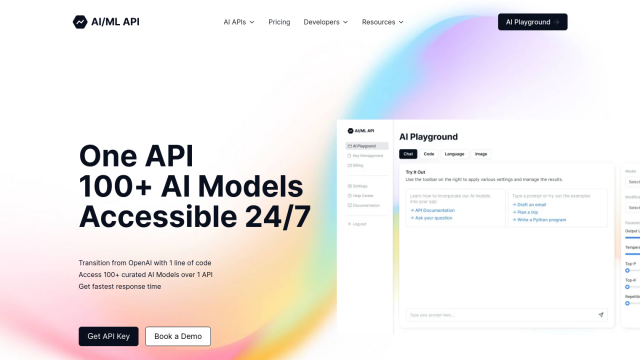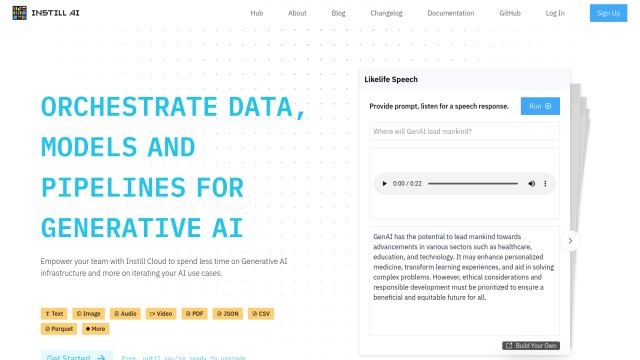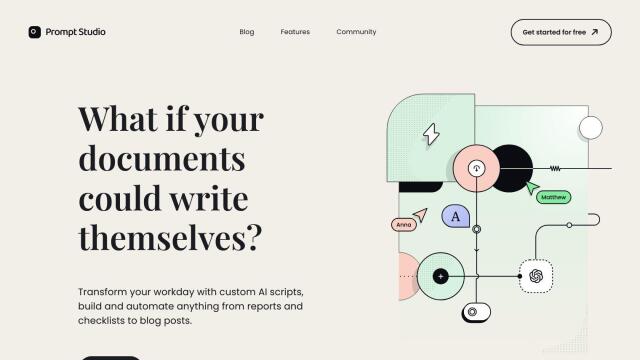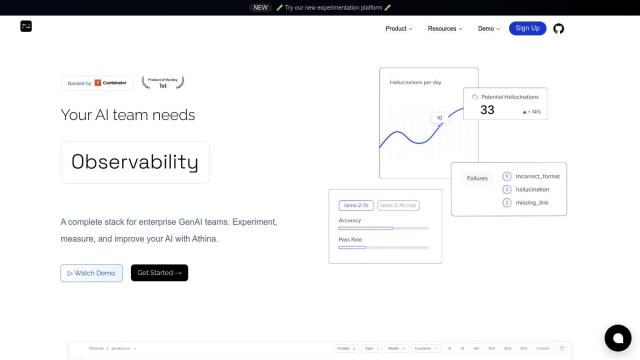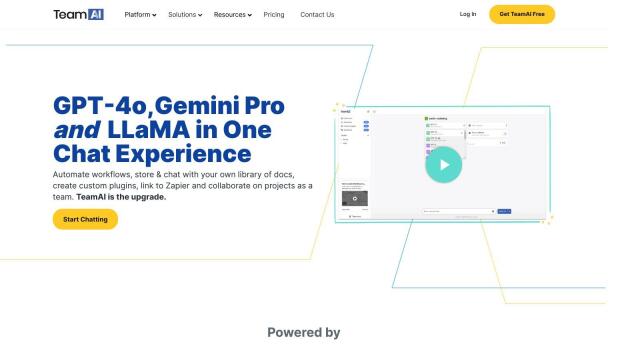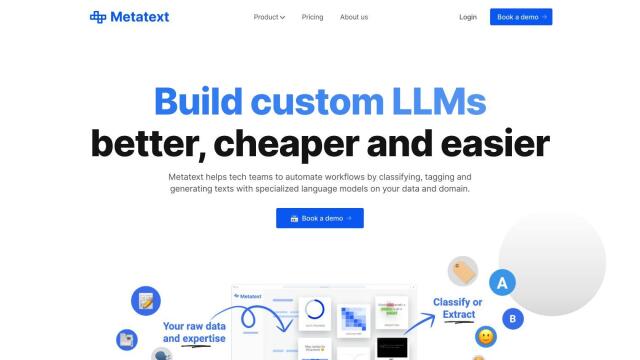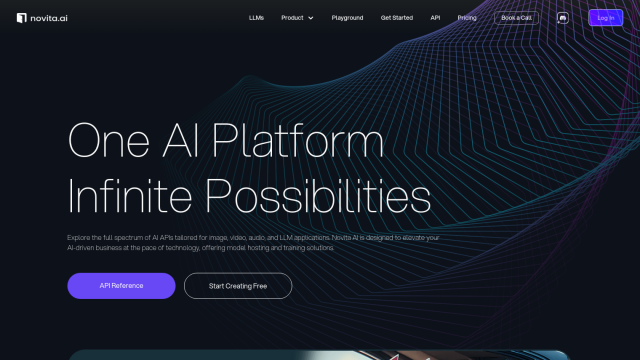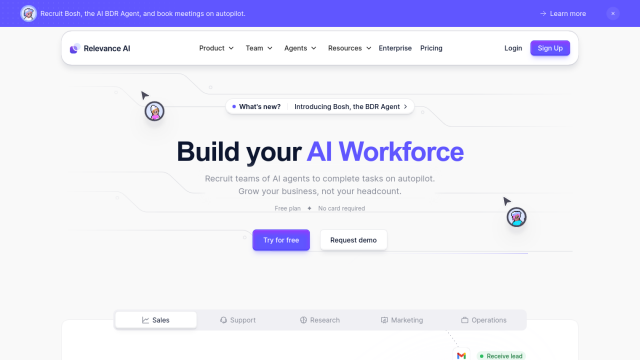Question: I'm looking for a solution that boosts the accuracy of text-to-API conversions and reduces latency in AI-powered applications.

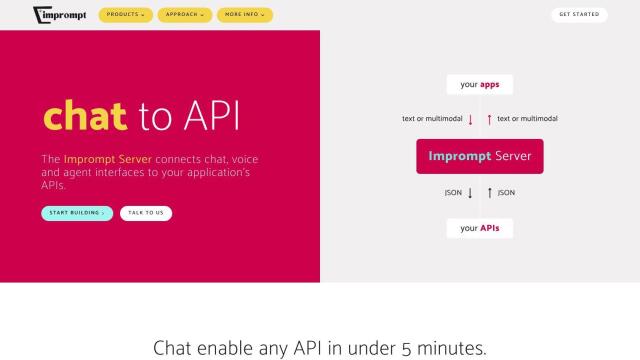
Imprompt
If you want to improve text-to-API conversions and lower latency for AI-infused apps, Imprompt is a good option. It lets developers language-enable their APIs and create advanced AI agents. Imprompt features include chat-based interfaces, more accurate text-to-API conversions, lower latency and drift prevention. It also supports multimodal sidecars for low-latency content transformation and decoupling from LLM providers. The service requires no code changes and offers a free basic plan, so it's a good option for companies that want to automate and improve their operations.

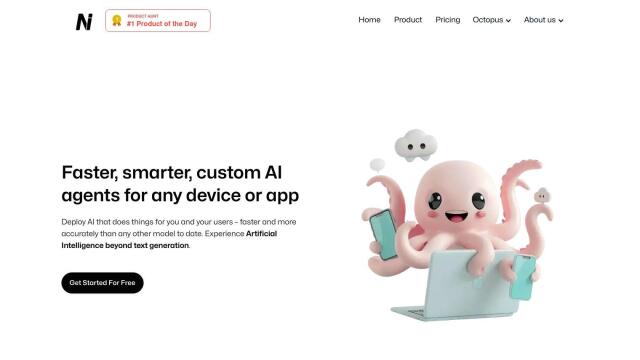
NEXA AI
Another contender is NEXA AI. It lets software understand natural language prompts and respond accordingly, a big improvement over the vagaries of today's AI results. NEXA AI offers AI agent models that can run on different devices and applications, and its Octo-net model offers unlimited scale with high language understanding. The service supports multimodal input with both text and images, and it has different pricing levels for different needs, including free basic plans and enterprise contracts with custom AI models and dedicated support.


ThirdAI
If you want a flexible and customizable AI foundation, ThirdAI is worth a look. It lets companies run large language models (LLMs) and other AI software without the need for dedicated hardware. ThirdAI includes document intelligence, customer experience enhancements and generative AI for summarizing long documents. It's got high accuracy and low latency in benchmark tests like sentiment analysis and information retrieval, so it can be integrated into existing workflows.


LastMile AI
Last on the list is LastMile AI, which lets developers use generative AI in production with confidence. It offers features like Auto-Eval for automated hallucination detection, RAG Debugger for optimization and AIConfig for prompt and model parameter optimization. The service also offers a notebook-inspired environment for prototyping and a dedicated team to help, so you can get to production-ready AI applications.











